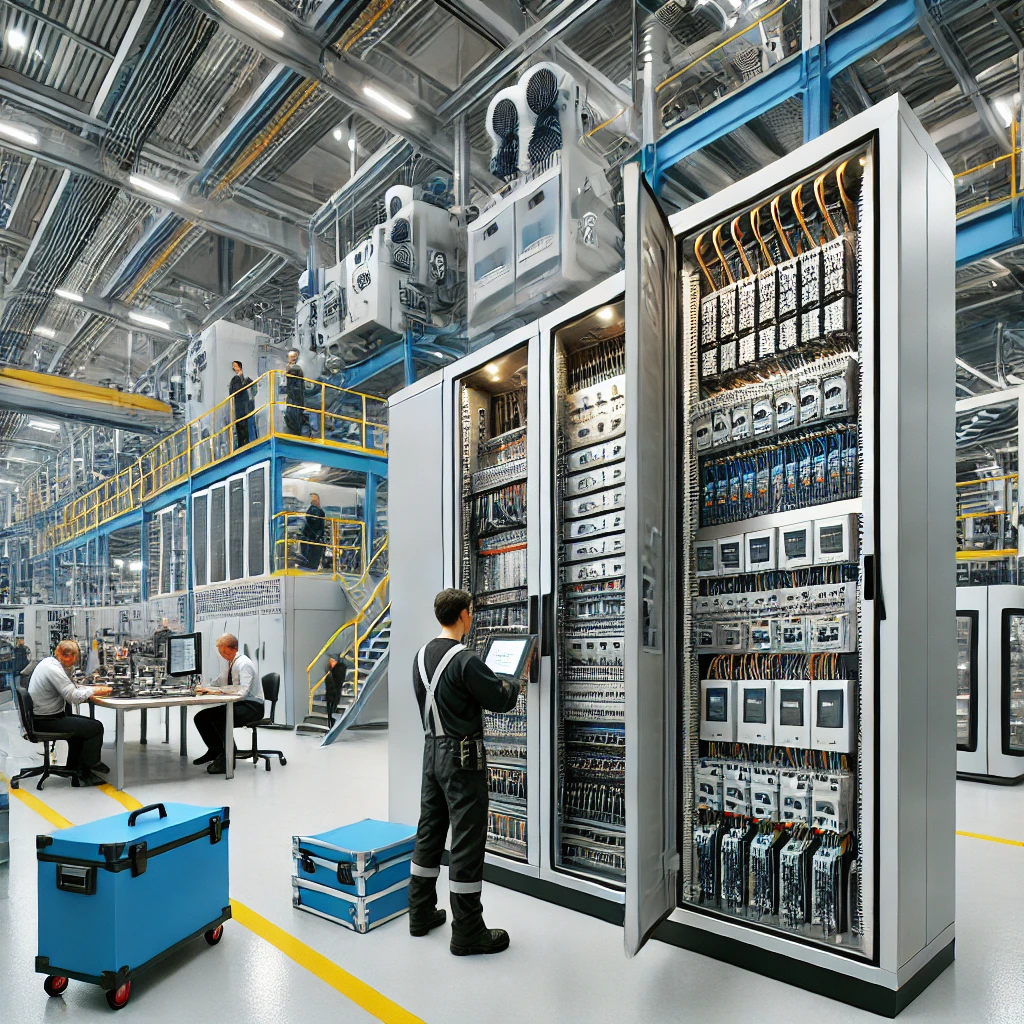What is Electrical Cabinets Industry?
The electrical cabinets industry involves the design, manufacture, and supply of enclosures that house electrical equipment. These cabinets, also known as electrical enclosures, are critical for protecting electrical components from environmental hazards, ensuring safety, and organizing complex electrical systems. Here is a detailed look at the industry:
Key Functions of Electrical Cabinets
- Protection:
- Shield electrical components from dust, moisture, chemicals, and physical damage.
- Ensure safe operation by preventing accidental contact with live wires and components.
- Organization:
- Provide a structured layout for electrical equipment, making it easier to manage and maintain.
- Include mounting options for circuit breakers, control panels, switches, and other devices.
- Safety and Compliance:
- Designed to meet specific safety standards and regulatory requirements (e.g., NEMA, UL, IEC).
- Protect personnel from electrical hazards.
Components of Electrical Cabinets
- Housing/Enclosure:
- Made from materials like steel, stainless steel, aluminum, or plastic.
- Available in various sizes and configurations to accommodate different applications.
- Doors and Panels:
- Provide access to the internal components while ensuring security.
- Often feature locks or seals for added protection.
- Mounting Plates and Rails:
- Used to securely attach electrical components within the cabinet.
- Cable Management Systems:
- Include cable trays, ducts, and tie-down points to organize wiring and cables.
- Cooling and Ventilation Systems:
- Include fans, vents, and air conditioners to regulate the temperature inside the cabinet.
- Seals and Gaskets:
- Ensure the enclosure is weatherproof and dustproof.
Types of Electrical Cabinets
- Control Panels:
- Used in industrial automation to house control systems and PLCs (Programmable Logic Controllers).
- Distribution Panels:
- Distribute electrical power to various circuits and protect them with circuit breakers or fuses.
- Server Racks:
- Specialized cabinets designed to house servers and networking equipment.
- Outdoor Enclosures:
- Built to withstand harsh environmental conditions, often used in telecommunications and utilities.
- Custom Enclosures:
- Tailored to specific requirements of unique applications.
Industry Applications
- Industrial Automation:
- Electrical cabinets are integral to automated manufacturing systems, housing control equipment and interfaces.
- Telecommunications:
- Protect sensitive networking equipment and ensure reliable operation.
- Energy and Utilities:
- Enclosures for power distribution, renewable energy systems, and utility controls.
- Commercial and Residential Buildings:
- Used for electrical distribution and safety systems in buildings.
- Transportation:
- Enclosures for signaling, control, and power systems in railways, airports, and vehicles.
Market Trends and Developments
- Smart Cabinets:
- Integration of IoT (Internet of Things) for remote monitoring and control.
- Enhanced data collection and predictive maintenance capabilities.
- Sustainability:
- Use of eco-friendly materials and energy-efficient designs.
- Focus on reducing the carbon footprint of manufacturing processes.
- Customization:
- Increasing demand for custom-designed enclosures to meet specific needs of advanced applications.
- Advanced Manufacturing Technologies:
- Adoption of automated manufacturing processes to improve precision and efficiency.
- Use of 3D printing for prototyping and custom parts.
Leading Companies in the Industry
- Schneider Electric:
- A global leader in energy management and automation solutions.
- ABB:
- Known for its wide range of electrical and automation products, including enclosures.
- Eaton:
- Specializes in power management solutions, including electrical enclosures.
- Rittal:
- Offers a comprehensive range of enclosure systems for various industries.
- Siemens:
- Provides advanced electrical and automation solutions, including enclosures.
Conclusion
The electrical cabinets industry plays a crucial role in ensuring the safety, organization, and efficient operation of electrical systems across various sectors. With advancements in technology and increasing demand for customized solutions, the industry continues to evolve, offering more sophisticated and versatile products to meet diverse application needs.


